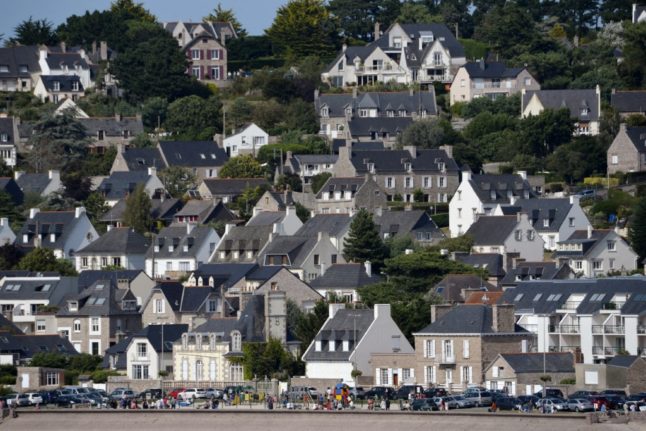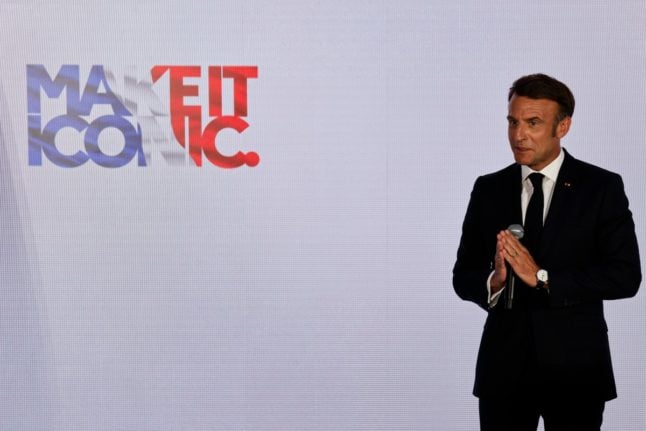After real estate professionals called 2023 an ‘annus horribilis’ in France, prospective home buyers have been hoping for the market to improve in 2024.
One particular issue last year was high interest rates for mortgages, coupled with strict loan requirements.
As a result, the number of mortgages granted dropped by 43.5 percent when comparing October 2023 with the same month the previous year, according to France’s Housing and Credit Observatory.
However, those high rates have finally begun to fall, as experts thought they would.
According to data from the Banque de France, average interest rates for new housing loans in March 2024 were at 3.94 percent, a decrease from 4.11 percent in February and 4.17 percent in January.
However, the average rate from March was still considerably higher than that of February 2022 (just 1.1 percent). On top of that, and the rate of purchases and new mortgages are still at a low level.
France’s central bank published new data on Monday that found that despite the dropping rates, the total amount of real estate loans given out has continued to decrease.
The total amount of money awarded to new mortgages in March amounted to €6.7 billion, down from €7.4 billion in February, marking the lowest value in almost 10 years according to Les Echos.
Why is the market still slow?
According to reporting by Les Echos, a big part of the problem is that overall real estate prices are still very high, even though they have started to decrease.
The Notaries of France found in their yearly report that property prices had gone down by an average of four percent across the country in 2023, but this picture depends a lot on location.
Large cities, such as Paris and Lyon, have seen greater decreases in the price per metre squared, while small-to-medium sized cities and rural areas have seen prices remain stable or even increase.
For example, property prices in the Paris region dropped by 6.9 percent year-on-year in February 2024, compared to a decrease of 2.9 percent which was the average for France’s other regions.
Additionally, would-be buyers still have to contend with France’s strict lending regulations.
READ MORE: French property: How to get a mortgage in France
In 2022, France’s council for financial stability (HCSF) issued new rules requiring that repayments – including insurance charges – must not exceed 35 percent of income, and borrowers must take on a loan with a maximum of 25 years, or 27 years in certain cases.
In December 2023, French lawmakers attempted to take up this issue. They succeeded in making things slightly more flexible, including allowing banks to allow borrowers to take out a 27 year loan as long as they are having renovation work that represents at least 10 percent of the home’s cost.
The HCSF also changed some of the ways that banks can calculate interest, as well as giving them more leeway in giving loan-related exceptions (previously these exceptions could only account for the 20 percent a quarter).
Is the government doing anything to boost the market?
In late-April, French MPs tried to table another bill that would loosen the regulations for granting loans even more, however it was eventually withdrawn after being criticised by the Banque de France for lacking substance.
Any new changes will likely be announced during the next quarterly meeting between the Banque de France and the minister of finance, Bruno Le Maire, but the date has still not been announced yet.
READ MORE: Where in France will property taxes rise in 2024?
What do experts expect for this year?
In April, the French property site Meilleurs Agents published their predictions for 2024, based on data from the first quarter. According to their experts, average mortgage rates will likely continue to on the trend of decreasing slowly.
However, this will depend on the policies set by the European Central Bank, which considers factors such as inflation when making their recommendations.
The property site also predicted that property prices would continue to drop, while maintaining large disparities between big urban areas and rural ones.
As for whether or not the market will speed up, the experts referenced the situation from 2023, when the number of property transactions (sales and purchases) fell by 20 percent. They predicted that there would still be a decrease in transactions, but that it would be lower than the one seen in 2023.



 Please whitelist us to continue reading.
Please whitelist us to continue reading.
Member comments